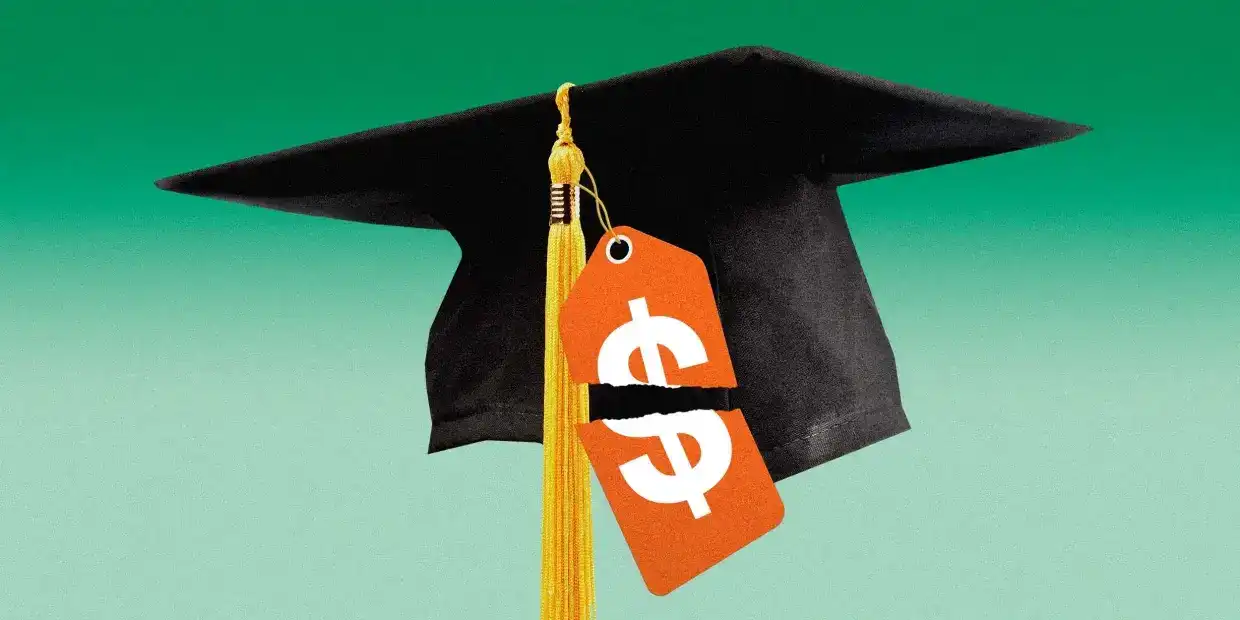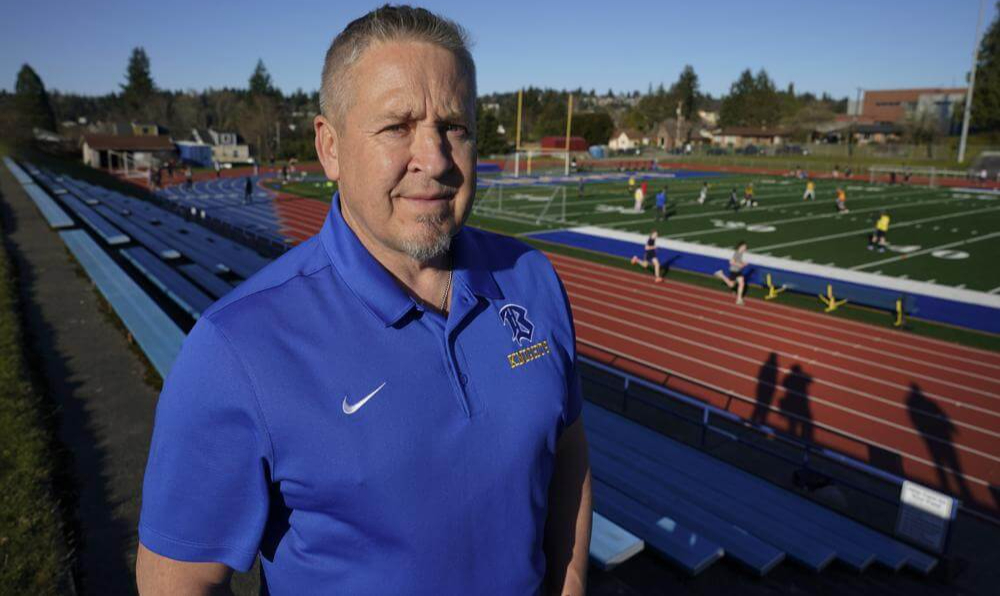To Forgive or Not to Forgive: The Student Loan Question

Image: Chelsea Stahl/NBC News
Last week, President Biden confirmed that he’s taking a “hard look” at potential executive action to forgive some amount of federal student loan debt less than $50,000 per person.
🎓💰 Background: The Biden administration has discharged $17+ billion in federal loans for over 700,000 borrowers to date. Last month, it extended the pause on federal student loan payments – initiated at the start of the pandemic – through August 31.
- Over the weekend, sources told WaPo that White House officials are looking at limiting new debt cancellation to those making below $125,000–$150,000 as an individual, or $250,000–$300,000 for couples who file taxes together.
🔢 By the numbers... On the higher end, these criteria👆 would encompass 97% of the more than 40 million people that owe ~$1.6 trillion in federal student debt, an amount larger than credit-card or auto debt.
- Federal loans make up more than 90% of outstanding student debt, and nearly 80% of federal borrowers made no payments during the pandemic freeze.
- The average amount borrowed by the class of 2020 (out of those who took out loans) was $28,400, per the College Board. 54% of borrowers owe less than $20,000.
- Canceling $10,000 in debt for every student borrower – a campaign pledge from Biden – would cost the US government roughly $245 billion, according to the nonprofit Committee for a Responsible Federal Budget.
👀 Looking ahead… Biden said he expects to make a decision on federal student loan forgiveness “in the next couple of weeks.”
Should President Biden take action to forgive student loans?

From the Left
85% of Democrats support some kind of federal student loan forgiveness, while 8% think no student debt should be forgiven at all.
Source → (Politico/Morning Consult)
“Contrary to what many activists want, the Education Department’s latest move tries to target federal aid to those who really need it. The income-driven repayment program limits monthly payments to a certain percentage of borrowers’ income, enabling people who pursue their desired careers without worrying how they will pay off their student loans. After 20 to 25 years of repayments, the program cancels borrowers’ remaining debt…
At least the Biden administration’s move aims debt forgiveness at those in income-related repayment programs. By contrast, across-the-board student debt cancellation, which left-wing activists and politicians demand, would amount to a regressive subsidy for many high-income university graduates…
Even offering borrowers $20,000 or $10,000 of debt cancellation would be a major waste if mistargeted. A broad cancellation would offer huge, undeserved benefits to doctors, lawyers and others who do not need taxpayers to foot the bill for their valuable educations… And it would be expensive. Simply extending the pandemic-era pause on student loan payments for four more months, which the Biden administration did this month, will cost some $20 billion. That could finance massive numbers of Pell Grants for poor students.
Canceling student debt has become a trendy cause in left-wing circles in part because, advocates insist, Congress delegated so much power over student loans to the executive branch that the president could make this massive change with the stroke of a pen. Mr. Biden should continue to resist these irresponsible demands, even as his administration looks for ways to offer more targeted relief. Congress, meanwhile, should make clear that high-income borrowers need no more federal help and instead put the money into college finance programs tailored to aid the needy.”
“Like millions of others across time, I’m paying back the large sum of money I borrowed to fund my education by myself. But that doesn’t preclude me from hoping that our administration does all it can to relieve as many other borrowers as possible…
The idea that current borrowers should be made to suffer through a record-breaking student loan crisis simply because those who came before them begrudgingly paid off their educational costs without such federal help is not a compelling reason to watch people crumble under the weight of debt…
The debate about student loan forgiveness also reveals a misguided take on fairness. It’s not unfair to make it easier for borrowers to have their loans forgiven, as some have argued, just because many people who can afford to pay off their debt will benefit while those who never attended college won’t. To the notion that some people who don’t need the financial help will benefit, I say, so what? Most people can use the money…
And while loan forgiveness programs don’t factor in people who didn’t attend college, I’m not sure how that’s a sign of unfairness. Lots of funding in our society helps specific groups rather than the whole (disabled people, older adults and public school students, to name a few) out of a sense of civic duty and the belief that a nation’s job is to assist communities in need…
As I make next month’s payment on my own student loan, I see nothing wrong or controversial about my fellow Americans getting some economic relief even though I, myself, am not receiving it because I don’t fit the criteria.”

From the Right
43% of Republicans support some kind of federal student loan forgiveness, while 48% think no student debt should be forgiven at all.
Source → (Politico/Morning Consult)
“If you borrow money and sign a contract promising to pay it back, then you must pay it back, or you will suffer serious long-term financial consequences. Or at least, that’s the way it used to work until Democrats decided they could win a lot of votes by just waving a magic wand and declaring that people didn’t have to pay their student debt back…
For the overwhelming majority of Americans, however, the system was not particularly pleasant, but it was clear and fair… You signed a contract. You knew the terms going in — or at least you were supposed to know them. You’re supposed to read the documents you sign. You knew the payments you were going to have to make and when you would have to make them. If you don’t want to deal with the financial pressure of debt, don’t take out the loan…
President Biden is on the verge of rewriting a longstanding social contract by deciding that taxpayers should repay significant portions of student loans, instead of the borrowers who took out those loans and received the education. The biggest beneficiaries would be white Americans under the age of 40 who have graduate degrees and live in high-income, majority-white neighborhoods — in other words, extremely online Democrats. Biden’s Hail Mary pass for the coming midterms is a massive wealth transfer from taxpayers to the Democratic Party’s activist class, and that will exacerbate the already-bad inflation crisis…
Apparently, President Biden’s philosophy is to borrow and spend whatever it takes to get inflation under control. He keeps throwing larger and larger piles of money at the public and then stands in befuddled confusion, wondering why inflation keeps getting worse.”
“America is experiencing inflation, gas prices are the highest are some of the highest in U.S. history, and the Biden administration is planning a money transfer to the richest segment of the American population…
The president didn’t get into specifics, how much would be canceled or for whom, but he had campaigned on canceling $10,000 worth of student debt per student…
A few weeks ago, the administration extended the pandemic-era pause on student loan payments, with waived interest, until August. Why? We’re in a time of incredibly low unemployment. Why put off the payment of this debt?...
The Chicago Booth Review, a publication out of University of Chicago’s Booth School of Business, found ‘While the highest-income groups have about twice the student debt as the lowest-income groups, research finds that across-the-board loan forgiveness would disproportionately benefit the rich, saving them well more than twice as much money’ and would make income inequality worse…
It also doesn’t help that this handout doesn’t come with any plan on what to do going forward. The people not paying their debt today are in a great time for employment. What about the people who graduate in four years or eight? What if there’s a recession or worse? How many more university debts are we signing up to pay?...
This is absolutely a moment where Republicans have to fight back and clearly make the case about this wealth transfer. This isn’t debt forgiveness. This is debt-someone-else-pays-it.”
Share this!
Recent Discussion stories

Discussion
| April 29, 2022The One About the Economy
📉 The US economy shrank at a 1.4% annual rate in Q1, according to Commerce Department figures published yesterday, well below analysts’ expectations of a 1% gain.

Discussion
| April 27, 2022The First Amendment & Religious Freedom
⚖️ The Supreme Court on Monday heard arguments in a case centered around a Washington state public high school football coach who would kneel in prayer at the 50-yard line after each game.

Discussion
| April 25, 2022Today’s Russia/Ukraine Update
🇺🇦 On Friday, Russia's military said it wants to seize all of the Donbas region and southern Ukraine – as far as south as Moldova – to form a land bridge to Crimea as part of "the second stage" of its invasion.
You've made it this far...
Let's make our relationship official, no 💍 or elaborate proposal required. Learn and stay entertained, for free.👇
All of our news is 100% free and you can unsubscribe anytime; the quiz takes ~10 seconds to complete